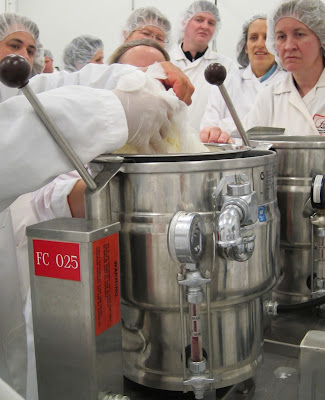Flavourful Saskatoon, March 20, 2017
Food Films Night, Mar. 24
Saskatoon Food Council is screening 11 short films about food at 7 pm, Mar. 24, at Station 20 West.
Food Unites ALL of Us, Mar. 26
Food Bloggers of Canada are hosting potluck dinners across Canada to celebrate diversity. Noelle Chorney is hosting a dinner in Saskatoon on Mar. 26. Bring a dish that represents your family and your heritage.
Co-op Liquor Tastings
Co-op Liquor has a great line-up of tasting events. There’s Italian wine on Mar. 24, Regina’s Rebellion Brewing beer on Mar. 25, Sherry on Mar. 31, Bourbon on Apr. 1, and Prairie Bee Meads on Apr. 8.
Artichokes
Our Farm is growing and planning to sell artichokes. Artichokes are a perennial in milder climates. In Saskatoon, they have to be replanted every year and tricked into believing they’ve experienced a mild winter. Find out all the details on Our Farm’s Facebook page.
Canada’s History in Cuisine
From pemmican and tourtière to perogies, ginger beef, Yukon gold potatoes, and wild rice, this article recounts Canada’s history through its food. There were some surprises for me. Who knew that Hawkins Cheezies became a uniquely Canadian product in 1960 and that 50 years later, they’re using more or less the same recipe and the same equipment. And Pablum was invented by a group of doctors at Toronto’s Hospital for Sick Children in 1931.
Japan’s School Lunch Program
More than 10 million children eat a healthy school lunch every day in Japan. The ingredients come from local farmers or the school’s own farm and are cooked that day. In addition, the kids take turns serving the meal, cleaning up, and recycling.
Dirty Dozen - Clean Fifteen
Strawberries and spinach top the Dirty Dozen list of produce containing the most pesticides. Also on the list are nectarines, apples, peaches, celery, grapes, pears, cherries, tomatoes, sweet bell peppers, and potatoes. If possible, buy organic.
On the other hand, organic is less important if you’re purchasing from the Clean Fifteen list of produce least likely to contain pesticides: sweet corn, avocados, pineapples, cabbage, onions, frozen sweet peas, papayas, asparagus, mangoes, eggplant, honeydew melon, kiwis, cantaloupe, cauliflower, and grapefruit.
Meals on Wheels with a Difference
A Montreal Meals on Wheels program operates its own farm, delivers by bicycle, composts, and cans its own produce. In their efforts to reduce waste, they even make meals from leftovers and operate a small store.
Chocolate
The higher the percentage of cocoa solids in your chocolate bar, the more intense the flavour. However, even if the bars list the same percentage, they may differ greatly. The amount of cocoa butter, sugar, and milk or cream also make a huge difference. “The key thing to remember is that cacao percentage is a measure of quantity, not necessarily quality.”
Flavourful Saskatoon is a weekly Monday feature. I also post articles about food that is good, clean and fair; travel; and books. You may also enjoy EcoFriendly Sask profiling Saskatchewan environmental initiatives and events.
You can follow Wanderlust and Words on Facebook, Twitter, or by email (top right corner).






Comments